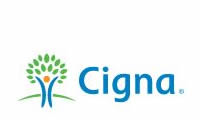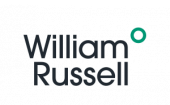Going to the Doctor in South Africa

Going to the doctor in a new country can feel a bit daunting. You may not be sure who you should see for what and how payment is handled, and this might make you put off important decisions on which providers your family should see. It is always a good idea to find out as much as possible about your host country’s healthcare system before you are faced with any emergencies.
Medical Aid or Health Insurance in South Africa
Unlike the majority of South Africans, most expats living in South Africa are fortunate enough to be able to afford private healthcare. This means you are more or less free to select your doctor of choice.
You may have health insurance through a global provider, in which case you typically pay for your medical bills as they are incurred and then claim a refund from your insurance afterwards by submitting your claim.
Another option is a South African medical aid plan where you typically have to choose a doctor from an approved list of providers. The major providers are:
- Discovery
- Bonitas
- Medshield
When choosing a local medical aid plan, you should be aware that doctors and hospital fees are generally low in South Africa, especially compared to the United States. This means that you may be better served with a low-cost plan that covers accidents and hospital stays, but not regular doctor’s visits. Some medical aid plans also offer attractive discounts for gym memberships, so be sure to factor that in when making your choice.
For full information on your options, refer to our article on “Healthcare in South Africa”. For providers, compare health care services in South Africa.
Doctors in South Africa
Most South Africans – adults and children alike – see a general practitioner for checkups and minor problems such as colds and immunizations. General practitioners or family doctors may operate in one-person offices or larger groups that allow for round-the-clock coverage. One such group is Intercare, which operates offices around the country and offers a wide range of medical services such as pre-natal care, psychiatry, dental care and surgery, a travel clinic, and x-ray labs all under one roof. Especially when you’re new to the country, Intercare is an excellent and convenient first stop for your day-to-day healthcare needs. But of course you will also find a wide variety of specialists should you need one.
When you come for your first doctor’s visit, you will be asked to fill out a new patient information form, stating your address (and that of the person responsible for the account, should it be different) and a few personal details. If there are several members of your family attending the same practice, you typically only have to give the birth date of each additional person, and nothing else. No pages and pages of information, no sheaf of indemnity and disclosure forms. You will find that South African doctors take plenty of time for a typical consultation, giving you an opportunity to have all your questions answered without feeling rushed. They are typically accessible for after-hour queries via mobile phone.
Pediatricians exist but are often associated with hospitals for emergency or specialist care.
Hospitals in South Africa
Some of the best medical training can be had in South African hospitals, both private and public, and as a result its doctors are highly sought after around the world. The level of care in South Africa’s private hospitals is excellent. There are three major private healthcare providers: Life Healthcare, Netcare, and Medi-Clinic, each with a number of branches throughout South Africa (but concentrated in the major population centers, with Johannesburg leading the list). All of these have excellent reputations and offer world-class care.
Should you have to go to a hospital, make sure you bring a credit card (or several – American Express and Discover are not widely accepted) because you will be asked to pay a deposit upon check-in. Don’t be surprised when you then have to pay each service separately, i.e. your x-rays, your blood work, the doctor, and the anesthesiologist. You should also make sure you obtain a detailed receipt for each payment so that you have no trouble getting reimbursed by your health insurance. Chasing South Africa’s bureaucracy for receipts after the fact can be a bit of a chore. When scheduling major operations, you may need to obtain approval from your insurance ahead of time.
Some of South Africa’s public hospitals are best avoided as they are understaffed, inefficient, and lacking basic supplies. It must be said that this is not true for all government-funded hospitals, and some are internationally acclaimed and well-known for their research. Groote Schuur Hospital in Cape Town is where Christiaan Barnard performed the first ever human heart transplant in 1967.
Pharmacies in South Africa
Pharmacies/drugstores are often called “chemist” in South Africa. There are several major pharmacy/drugstore chains in South Africa, such as Dis-Chem, Clicks, and MediRite. Clicks stores are often located next to the larger doctor’s offices so that you can easily pick-up prescriptions immediately after your appointment. MediRite pharmacies are conveniently located in Shoprite and Checkers stores. Dis-Chem has fewer locations but one of the largest product ranges, including additional services such as mail-order and courier delivery, clinics, and vision screenings.
One of the curiosities about picking up prescriptions in South Africa is that the dispensary often hands out the drugs in a small metal cage, not unlike a pet carrier, which you then carry to the cash register where the seal is broken.
If you live in a rural area, you might have to stock up on basic medicines and prescriptions whenever you shop in a bigger city. The same goes for traveling into the bush. When you are in the bush in South Africa, you are truly left to your own devices and much farther removed from emergency services than in most Western countries. It is a good idea to invest in a fairly extensive medical kit containing such basics as bandages and cortisone cream but also broad-spectrum antibiotics and burn shield.
Emergency Numbers in South Africa
One of the first things you should do upon your arrival in South Africa is create a list of emergency numbers for your refrigerator (or wherever it is you keep such things). Depending on where you live, your list might vary. Even the terminology of the various services can be a bit unusual (who has ever heard of “Flying Squad”? - the name for Police Emergency Services in South Africa). The last thing you want to do in an emergency is go down a long list of numbers and not be sure which one to call.
South Africa does not have the equivalent of the American 911 emergency number. Typically, there is one number for police/fire and another for medical emergencies. However, if you are calling from a mobile phone the universal number for all emergencies is 112, so programming that one into everyone’s mobile phone should be your first order of business.
In addition, there are two major private ambulance services: Netcare 911 and ER24 (owned by Medi-Clinic). It is best to call them directly should you need an ambulance.
It is also a good idea to write down your estate’s security office number (if applicable) as they are often the quickest to arrive at the scene and can give assistance for minor emergencies. Finally, you might add the nearest hospital to your list including a map on how to get there.
Johannesburg Emergency Numbers
This is how your list in the Johannesburg area might look like:
South African Emergency Numbers
|
ER24 (ambulance) |
084 124 |
|
Netcare 911 (ambulance) |
082 911 |
|
Police/Fire |
10111 |
|
Poison Information Centre |
021 931 6129 |
Dentists/Orthodontists in South Africa
Like medical care, dental care in South Africa is generally very good, but unlike medical care it also seems to be as expensive as or even more expensive than elsewhere. Especially orthodontic treatment can put quite a dent in your wallet. In addition, expats often incur double or triple the costs when moving from country to country as each new orthodontist charges full price. Therefore, negotiating a pay-as-you go plan with your orthodontist might be necessary.
If you have a South African medical aid plan, dental care might not be covered, so make sure you take that into consideration when selecting a plan.
Overall, going to the doctor in South Africa is a fairly straightforward affair and – compared to countries with public healthcare systems – mostly free of annoying paperwork. And when you move on to your next expat assignment, your doctors will happily give you all your records without any additional charges.
By Sine Thieme, an American repat just returned from a three-year assignment in Johannesburg with her husband an four children, where she loved the weather, the people, going on safari, and the fact that you never quite knew when exactly 'just now' would be.
- South Africa: Expat in JHB looking for other SA expats for PhD
- South Africa: EasyExpat.com is looking for networkers/helpers for...
- South Africa: EasyExpat.com recherche des animateurs pour notre...
- South Africa: Les nouveaux expats en Afrique du Sud se présentent
- South Africa: New Members in South Africa: Welcome!
- My Life Abroad -
A selection of expat stories

"A fun compulsive read!"
J. Matcham, Amazon
"I strongly advise people ready to live abroad to read this book!"
Patrice, Amazon

 Guide to the European Health Insurance Card
Guide to the European Health Insurance Card  Making a Plan for an Emergency Back Home
Making a Plan for an Emergency Back Home APRIL Travel Insurance
APRIL Travel Insurance Cigna Global
Cigna Global William Russell
William Russell